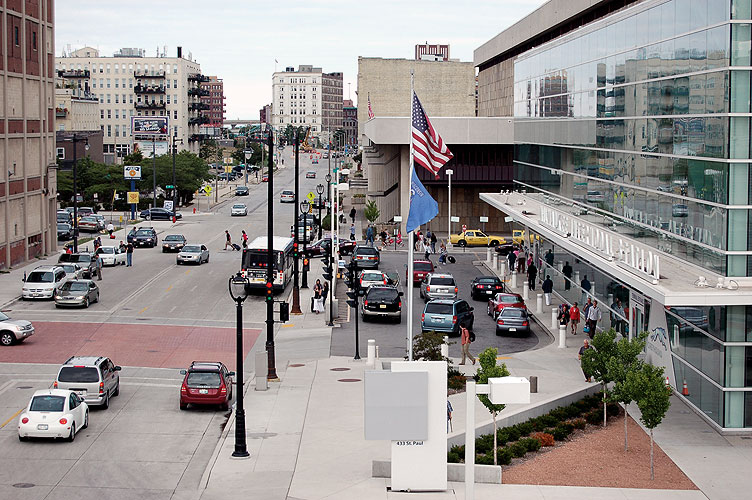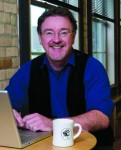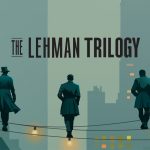A birthday wish list for the mayor

These Milwaukeeans have told us their wishes for the city. We wonder if that means they won’t come true? Photo by Joey Gannon, Creative Commons license
You’ve probably noticed by now that Outpost is celebrating its 40th birthday this month. At the Exchange, we were thinking about those 40 years and how far Outpost has grown, and also how much Milwaukee has changed, too. That got us thinking … if we could make a birthday wish for our city, what would it be? And we wondered about the people who work every day to make this city a better place — if they could ask the mayor for one thing, what would they ask for? So we asked around, and some inspiring Milwaukeeans gave us their thoughts:
Pam Mehnert
General Manager, Outpost & Board President, Our Milwaukee
I wish the Mayor would think local first and create opportunities to listen to the needs of local, independent businesses. Local businesses have built this great city and we are fortunate to have kept many of the larger and smaller independently owned manufacturers, retailers, and service providers among us.
I want Mayor Barrett to consider the fact that local businesses support our community in a much stronger way, economically, than the chain stores. I want him to realize that every time he buys a coffee at Stone Creek, sixty-eight cents of that dollar stays in our community, versus the forty-three cents that would stay here if he bought the same coffee at Starbucks. My wish is that the mayor will work with us to build a strong local economy.
Steve Filmanowicz
Milwaukee resident & Communications Director for Congress for the New Urbanism in Chicago
Since the time around forty years ago when the economic tailwinds that had long been at Milwaukee’s back shifted and became headwinds, the city’s economic and civic advances have been hard fought and the setbacks have been felt hard in the poorer neighborhoods and put great pressure on our schools and other institutions. But we shouldn’t miss the signs of the city’s resilience. Other Midwestern manufacturing capitals are now officially considered shrinking or shrunken cities — St. Louis fell from almost 860,000 people in 1950 to 355,000 in the fifty years preceding the 2000 census, Cleveland fell from 914,000 to 480,000 over the same period and Buffalo, Detroit and Pittsburgh all had similar drops.

Intermodal Station, photo by Brian Jacobson
But Milwaukee saw a milder dip, from a peak of 741,000 in 1960 to just under 600,000 in 2000, with a climb since then. There’s enough renewed manufacturing and engineering know-how to make it a viable base for building wind turbines, high-speed rail cars and other aspects of a more energy-efficient economy. And there is comparatively more life and character at the heart of Milwaukee and in the neighborhoods extending out from it along former streetcar lines.
My top wishes for the city would build on connections, both regional and highly local, that add to Milwaukee’s resilience. One thing distinguishing our city from more isolated rust-belt locales is its position not far from powerful markets in Chicago and high-tech innovation in Madison. Like Amtrak on steroids, the proposed high-speed rail network would shorten the perceived distance between these cities and eventually between Milwaukee and Minneapolis as well. Without the Amtrak Hiawatha, which I ride four days each week, Milwaukee is a perilous traffic battle away from Chicago. With it, it’s a smooth 90-minute ride, with passengers working on laptops, catching a quick nap or enjoying a newspaper or book.
With high-speed rail, Milwaukee will secure a place along a developing Minneapolis-Madison-Chicago knowledge corridor, which will continue to separate itself from the undifferentiated rust belt. With $800 million in federal funding now committed to building this network in Wisconsin, with more committed elsewhere in the Midwest, it’s hard to think of anything more self-defeating than letting this network bypass Milwaukee, as current Republican candidates for governor are willing to do. (Well, maybe opting out of the internet would top it.) The millions in state funds annually that might be spent operating the service is a tiny amount compared to the $7 billion in state and federal funds being spent widening and modernizing highways in Southeast Wisconsin.
James Godsil
Co-founder, Sweet Water Organics, Milwaukee
I would wish the mayor to use his bully pulpit and political influence to advance the concept of “a garden in every school, a community garden in every neighborhood.”
Victory Garden Initiative, Milwaukee
Oh, where do I start? My wish list for the mayor is largely focused on food-related issues. I want Mayor Barrett to embrace Michelle Obama and the urban agriculture movement that we have been blessed with in Milwaukee, and help us lead the way to a local, sustainable, nutritious food system.
Obesity is crippling us, our economy and our children. Food-related illness is the single-most preventable disease and has reached epidemic proportions. Our food system is controlled by corporate interests and the result is severe food insecurity. I wish Mayor Barrett would support a drastic change in our food system by doing the following things:
- Free up vacant land for use of urban agriculture.
- Mandate composting and support the growth of inner city composting collectives. This soil will be free for anyone who is growing food.
- Allow for parks to be combined agricultural use zones.
- Plant fruit and nuts trees whenever one of our city trees needs replacing.
- Help support rooftop gardens… how can we make them cheaper?
- Ensure that new development replace their footprint with an equal amount of green space (such as green roofs).
- Help pass chicken ordinances.
- In all job creation/development efforts, ensure that urban farmers get top priority for funding.
- Make industrial roofs available for food dehydrating.
- Pass an Eco-municipality Resolution.
- Develop a Sustainability Committee to help the city become more sustainable.
- Remove chocolate milk from all public school lunches. This is an easy way to remove sugar from our kid’s diets
- Get a garden at every school.
- Come to the Victory Garden and the Transition Milwaukee meetings and engage with the citizens who are trying to make Milwaukee more sustainable. We are your allies into the future.
Eddee Daniel
Author
I have lived in Milwaukee for most of the 40 years that Outpost is celebrating and I have grown to love the city. I have raised my two children here and have found it to be a great place to live. There are, certainly, things that I would like to see change. Among them are reduced segregation, improved education, economic development, and better mass transit options. Problems in these areas have been well publicized.
My particular interest, as the author of Urban Wilderness: Exploring a Metropolitan Watershed, is Milwaukee’s parks and environment. My wish list would have to include a reversal of the downward trend in funding for the parks. We have an enviable park system that should be considered one of the city’s greatest assets. Over the past several years I have read innumerable news articles about what Milwaukee should do to promote itself. These articles have rarely mentioned the added value that our parks provide for the city. My greatest wish for Milwaukee’s future would be that the value of the parks be so self-evident that every article that promotes Milwaukee would include mention of the parks and the environment as a matter of course.
Milwaukee not only has an exemplary, award-winning park system but, in the Urban Ecology Center, it has a model for raising our young people to enjoy nature and be good citizens within the natural world. All of that takes place within the city. My hope for the future of Milwaukee is that everyone comes to appreciate this remarkable treasure that we have in our midst. We should stop selling off park land, start adding land to the parks again, maintain them adequately, and promote Milwaukee for its wonderful opportunities to enjoy the natural environment. We could become the green destination of the Midwest if we should so choose. Let’s choose that!






















